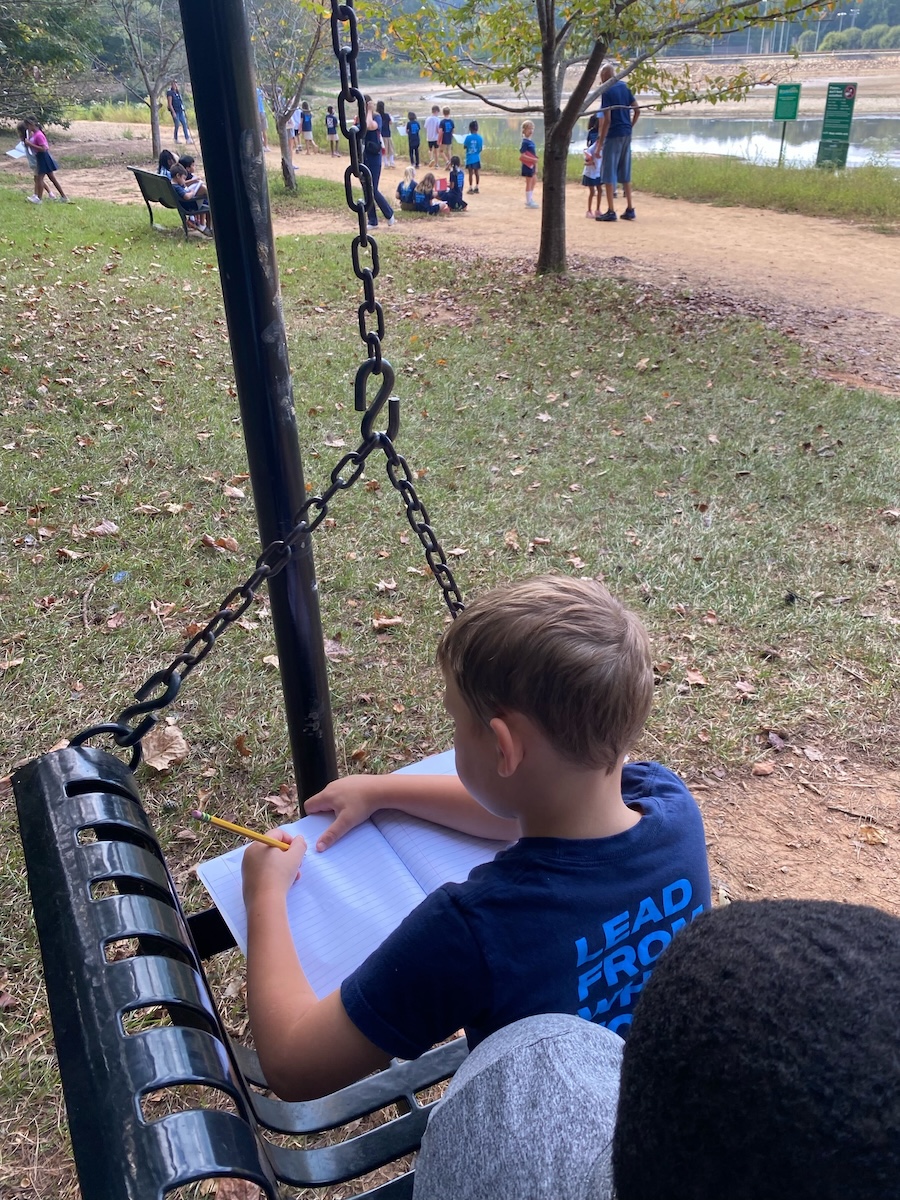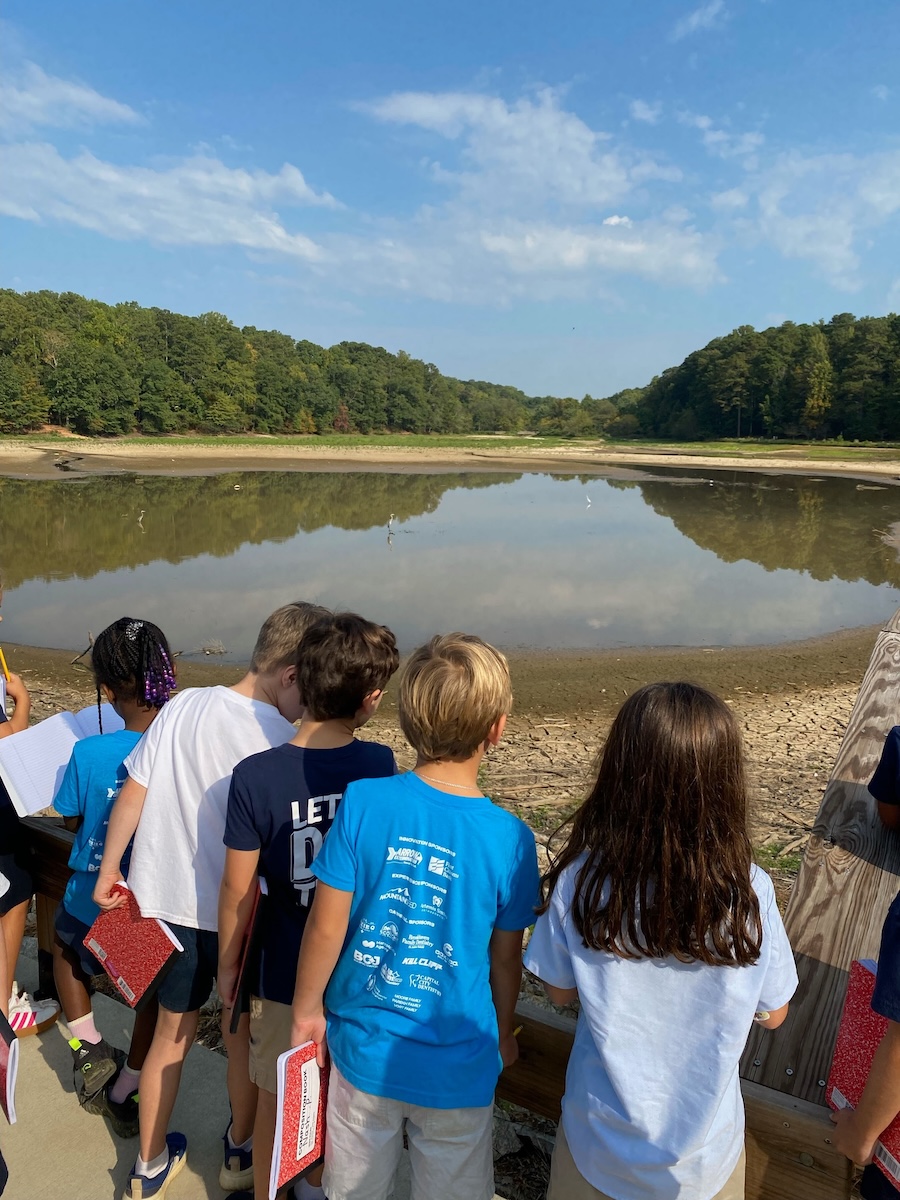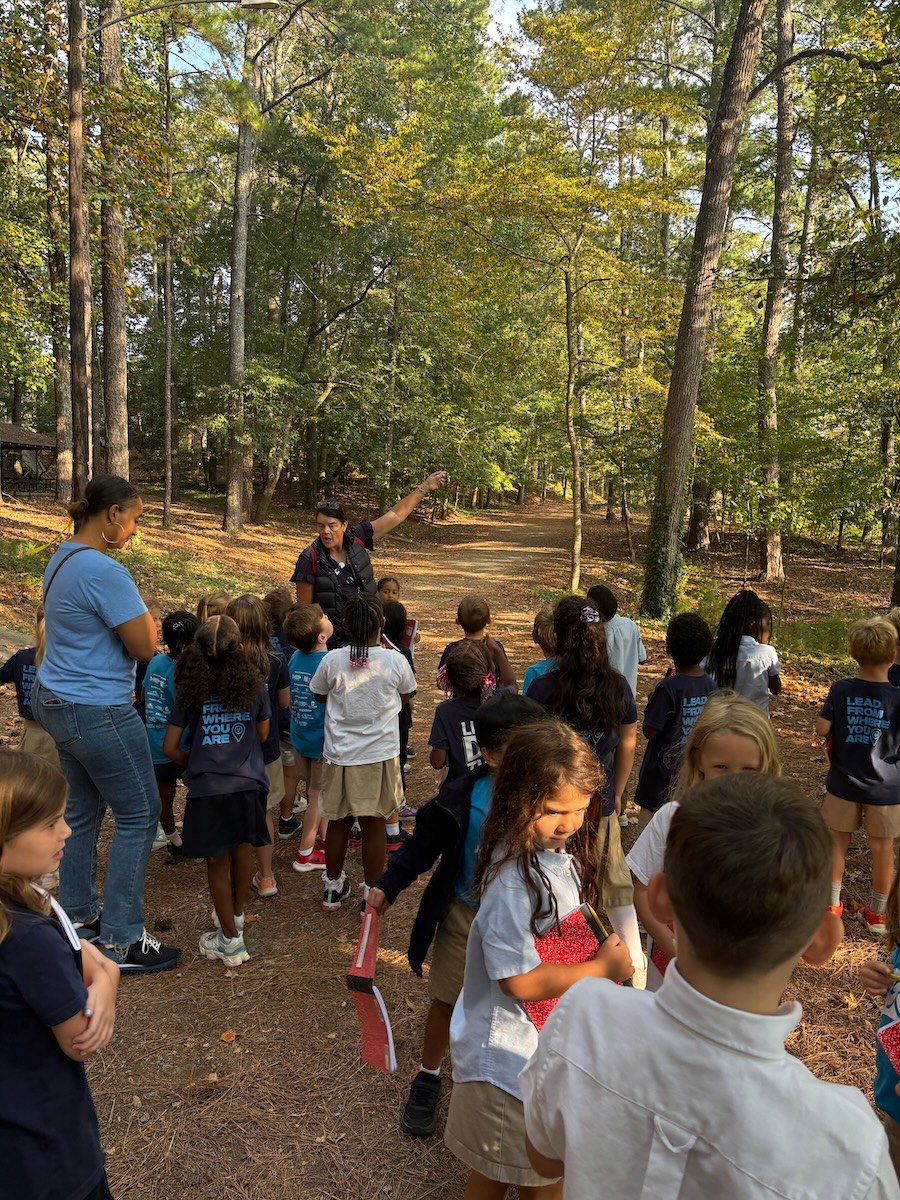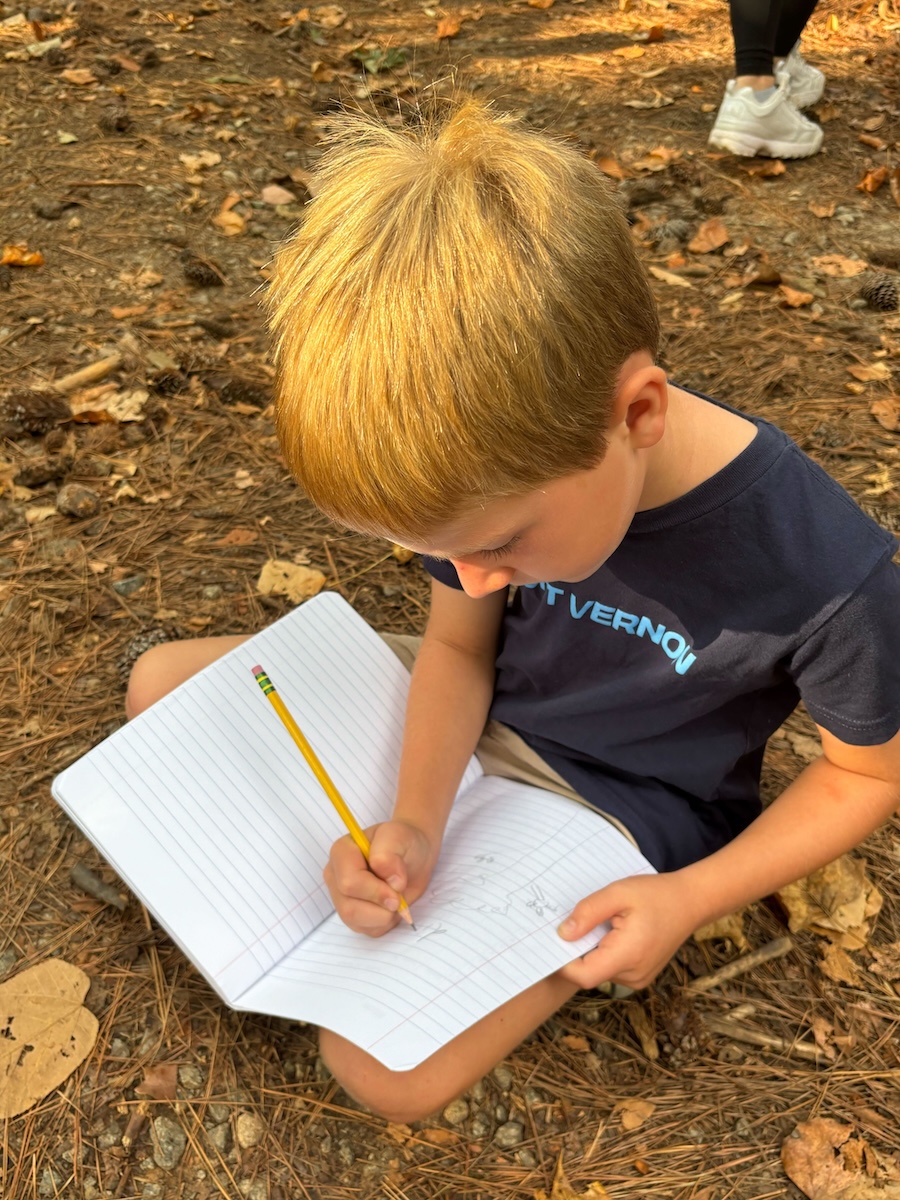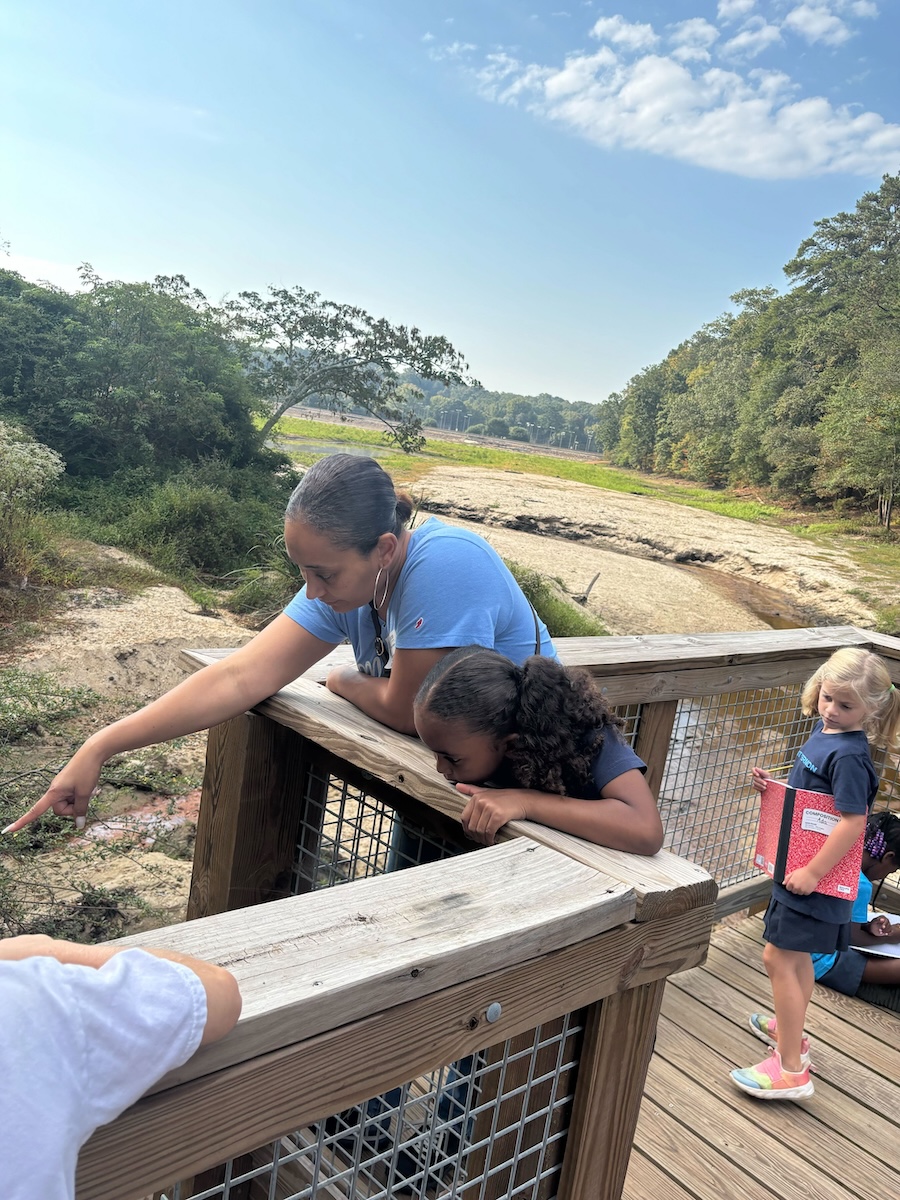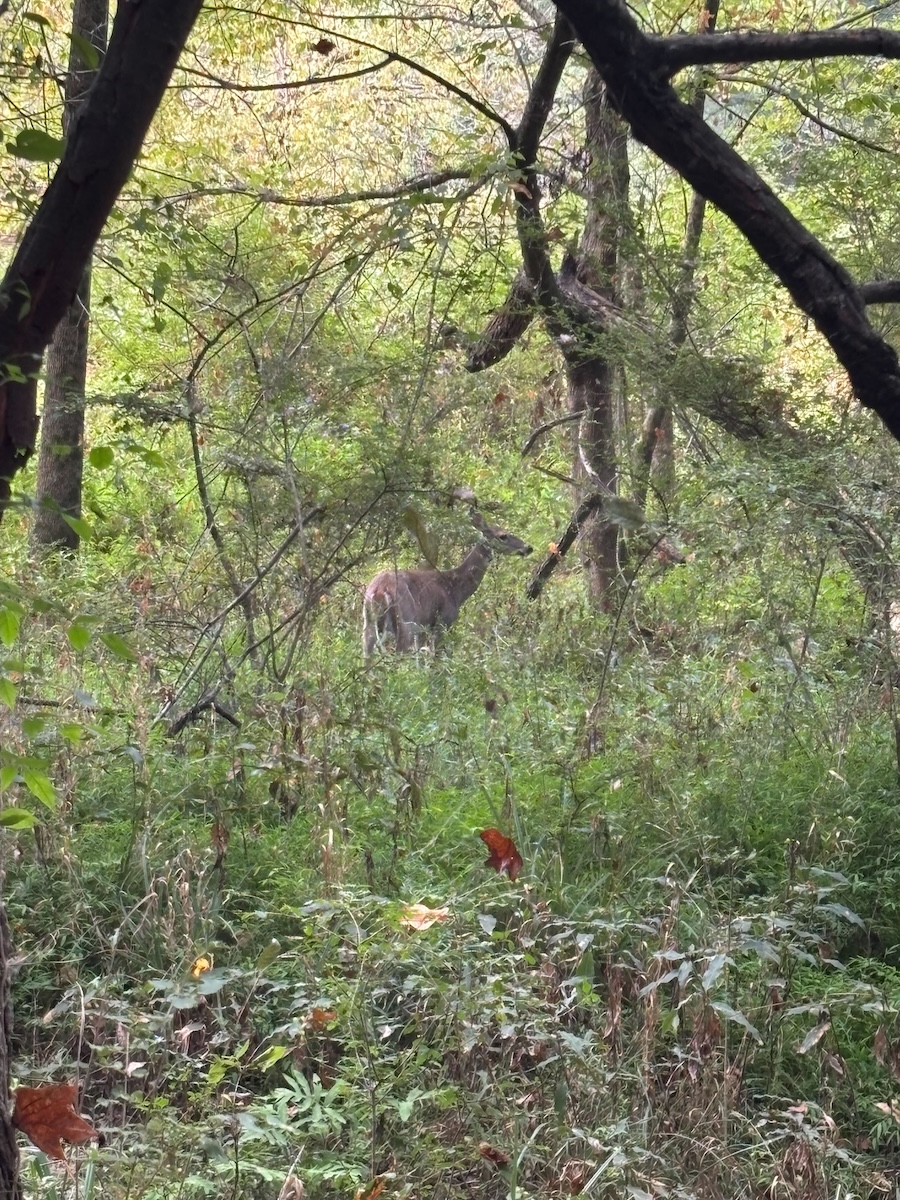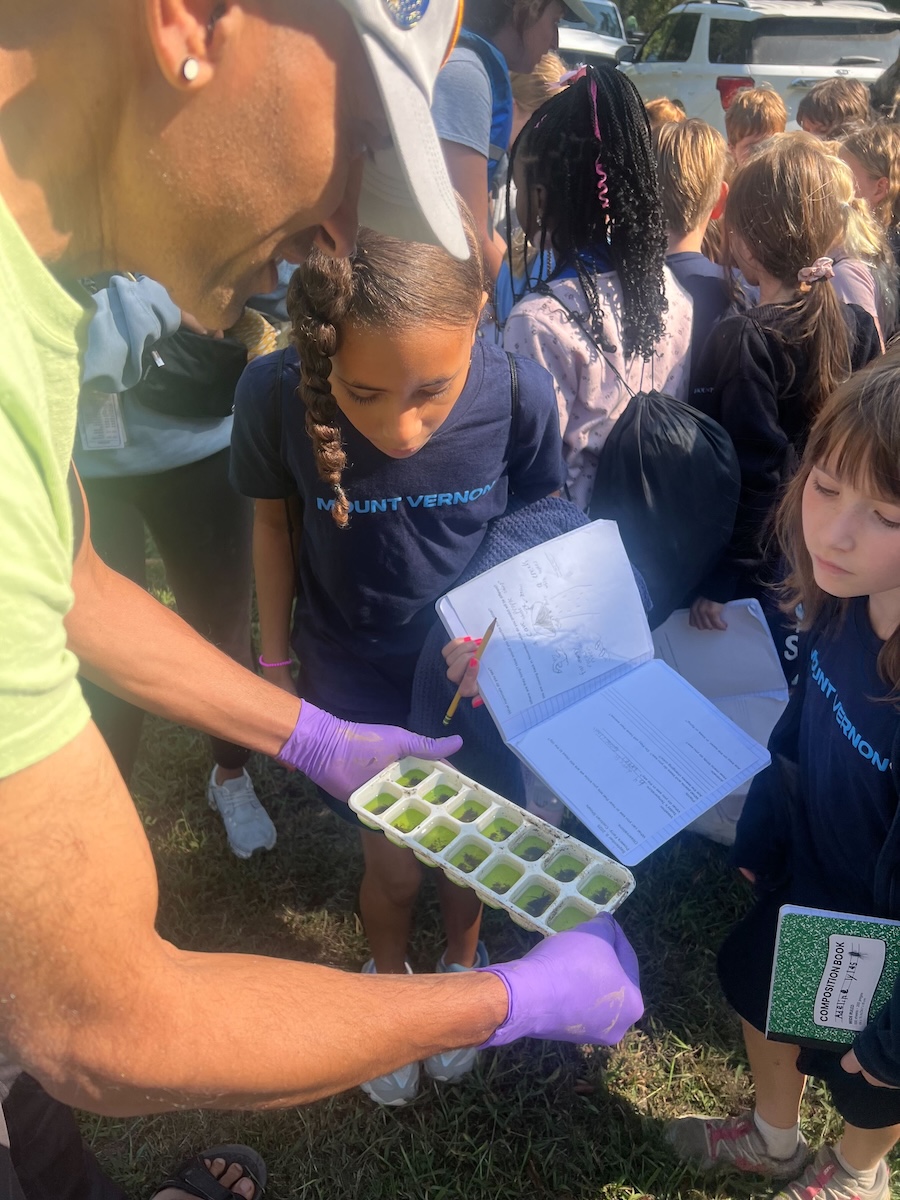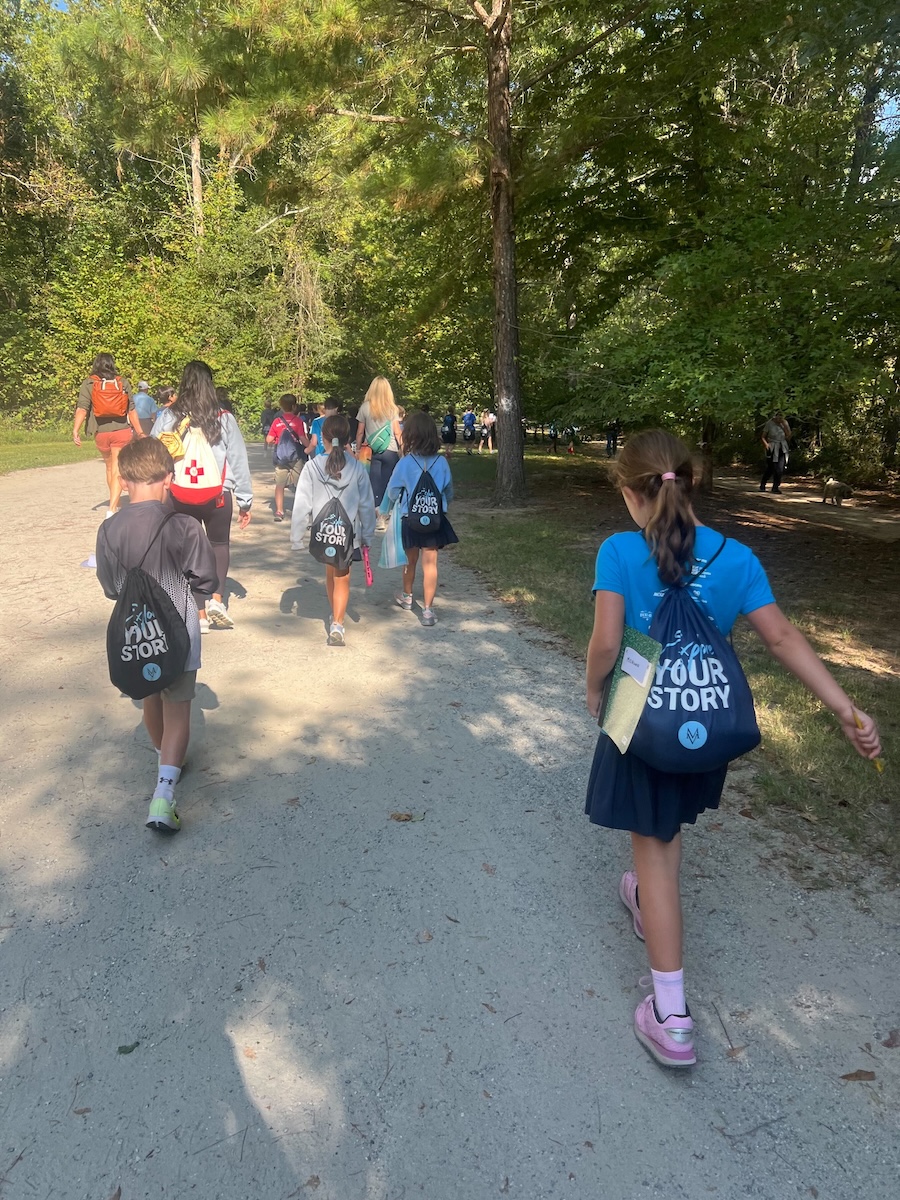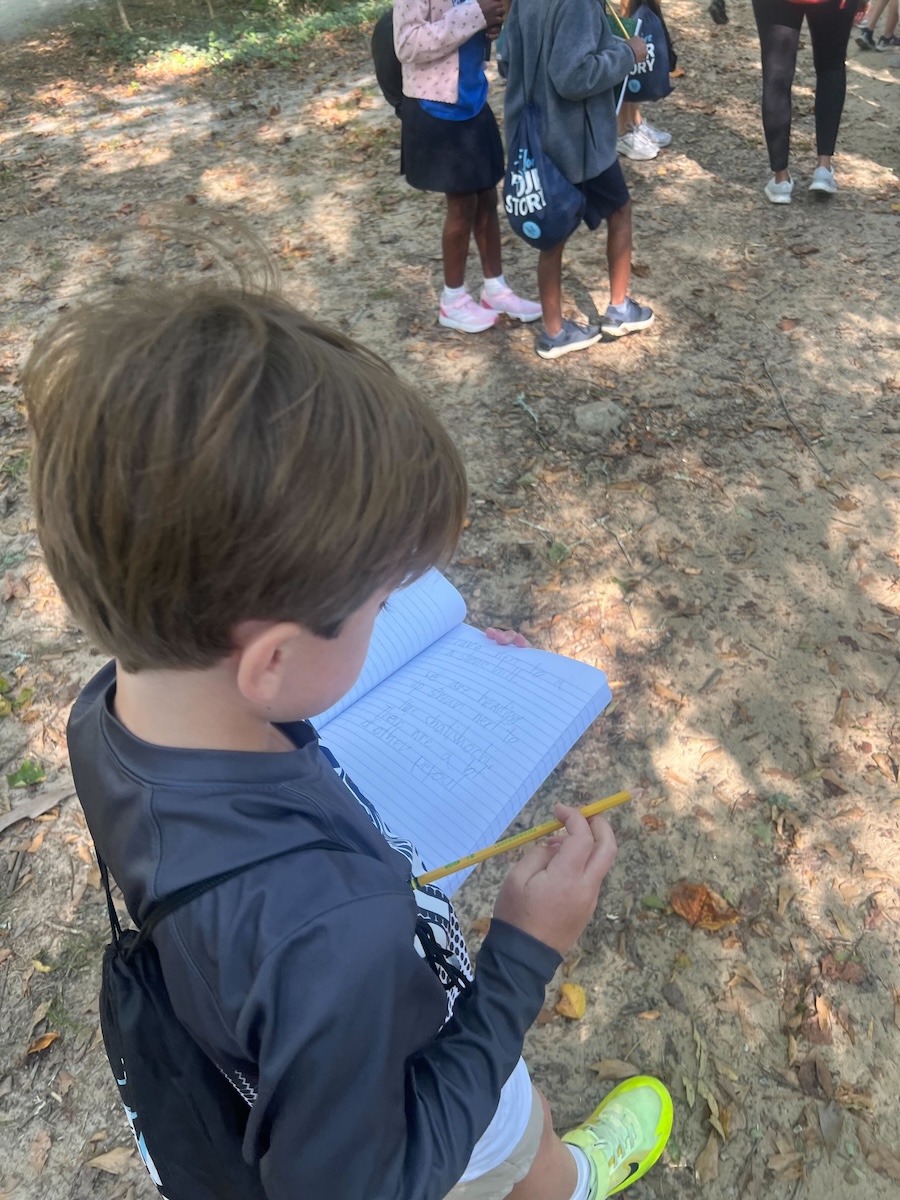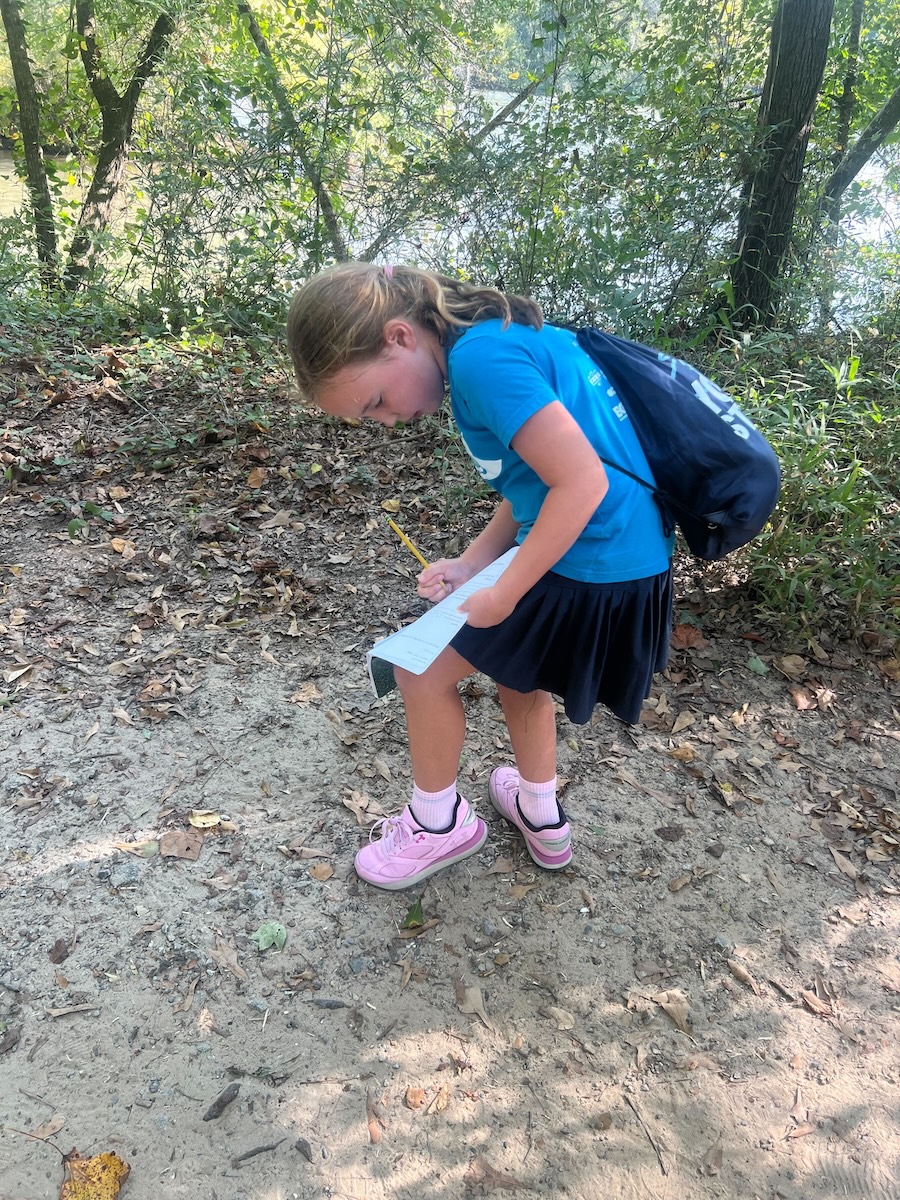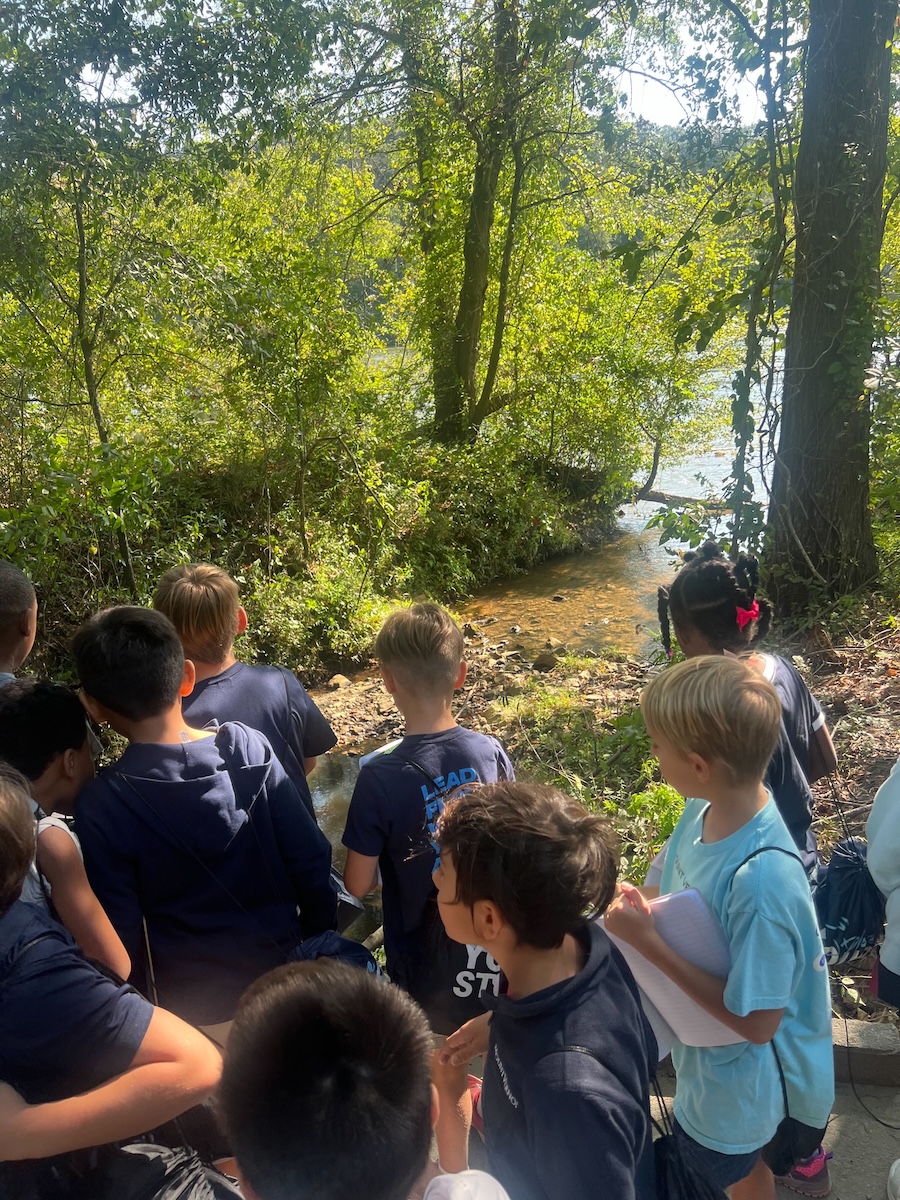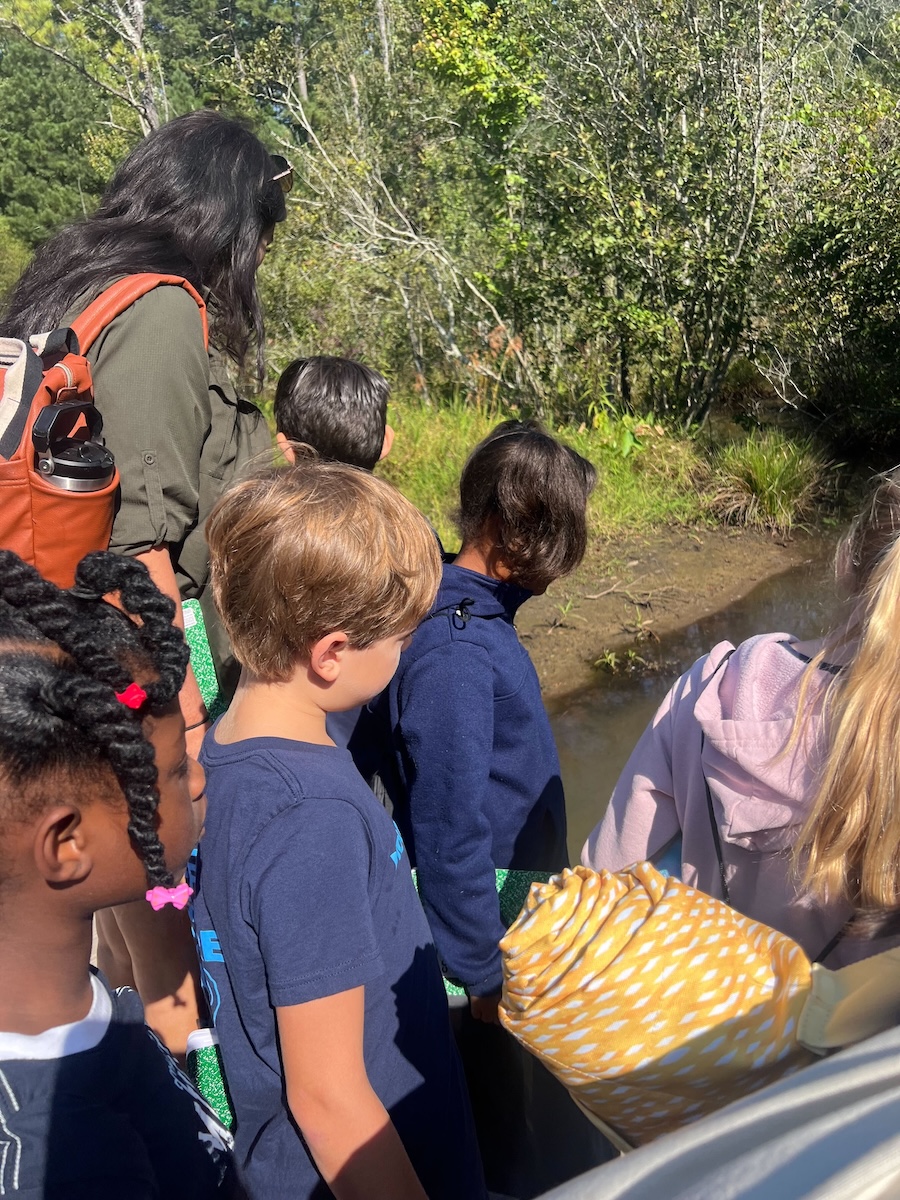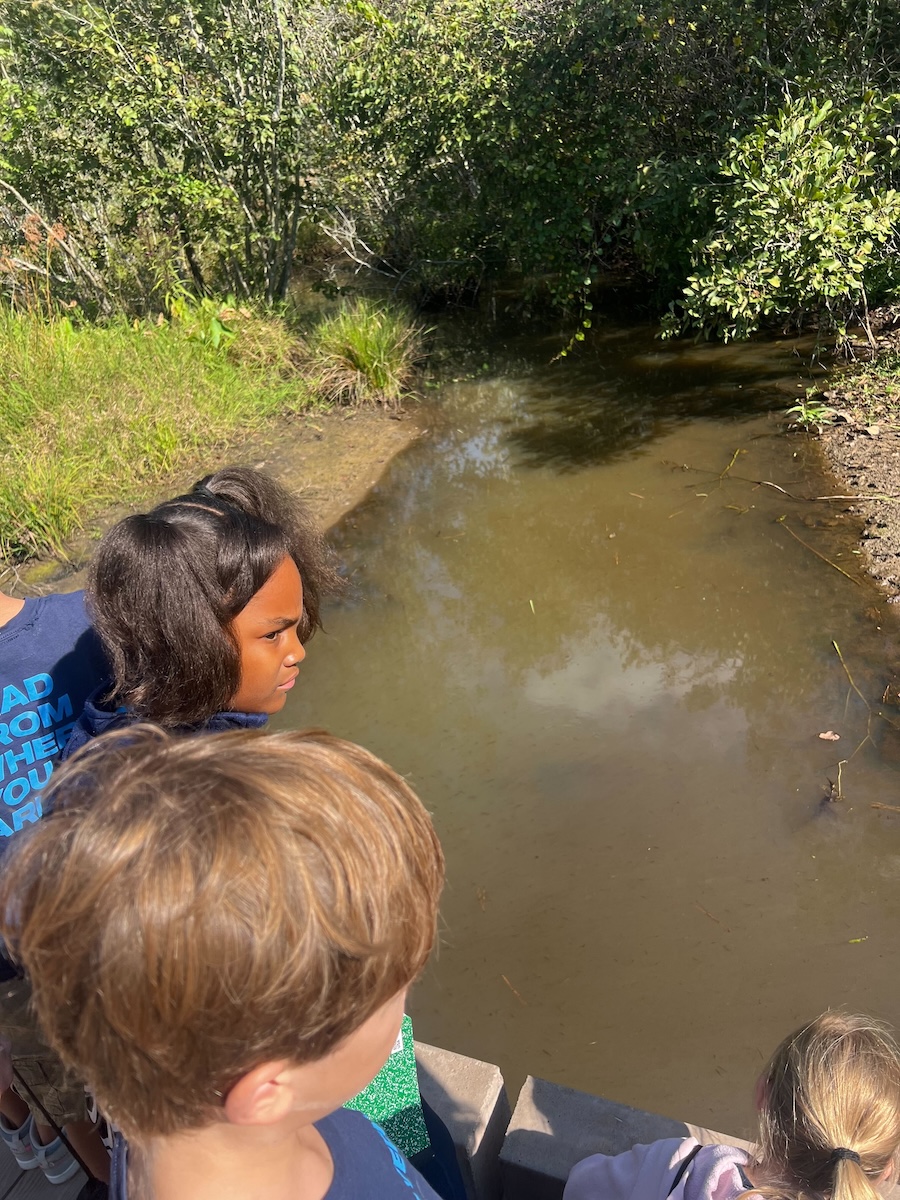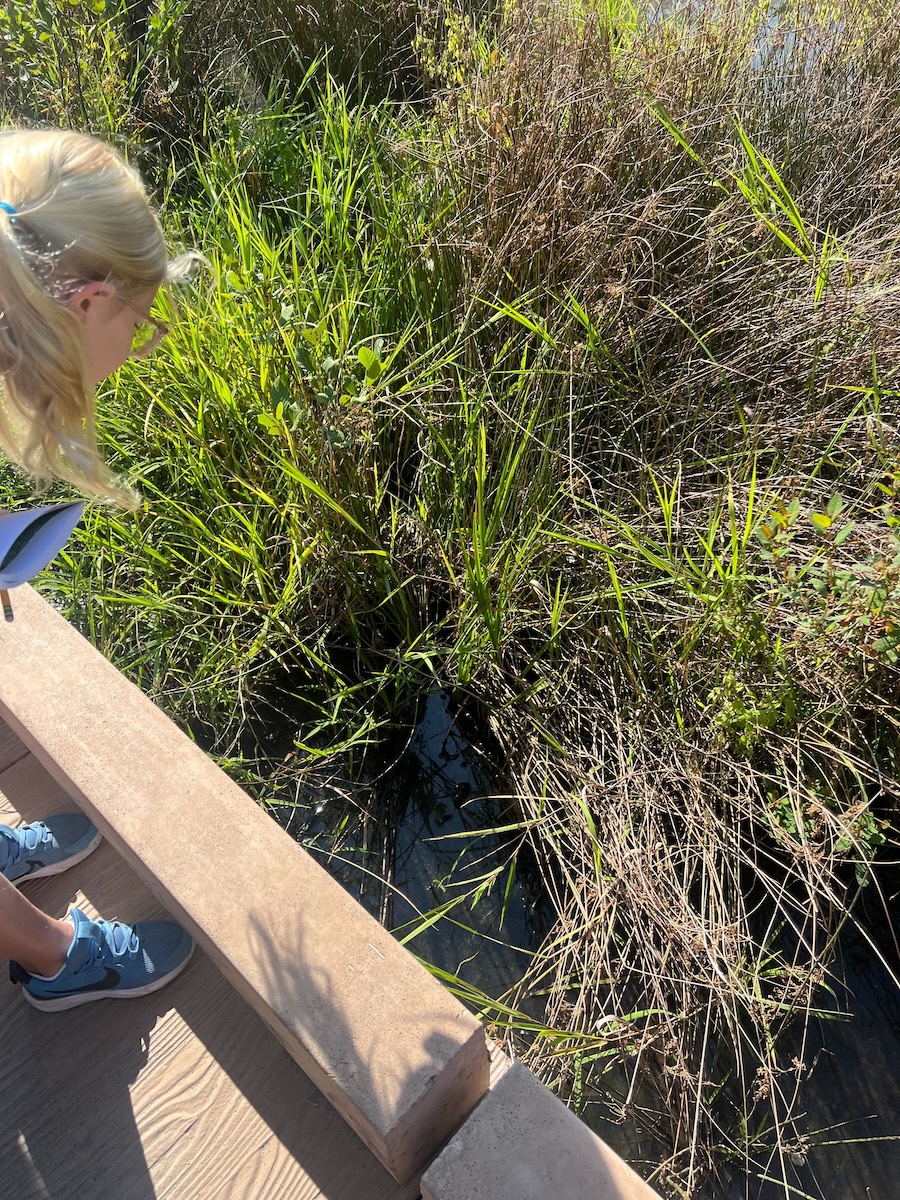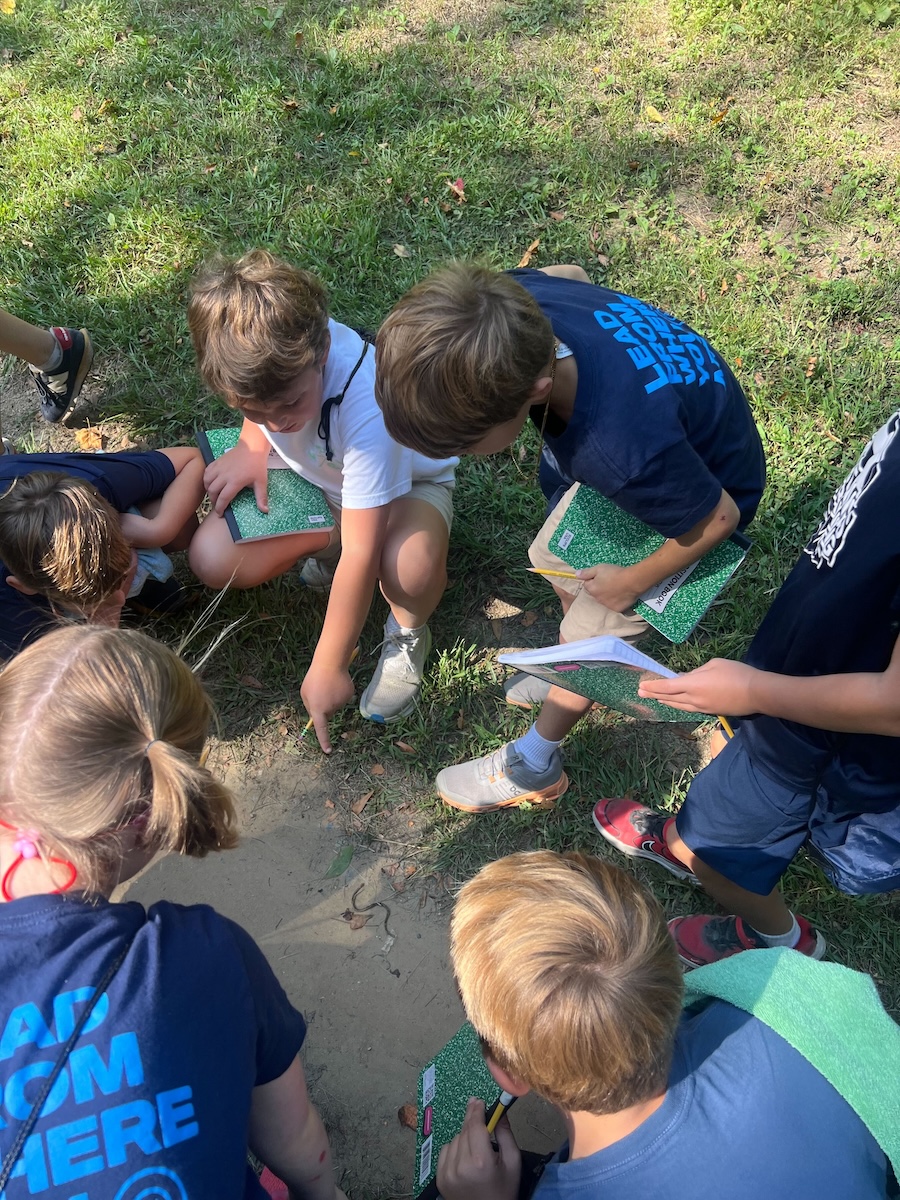For Lower School Science teacher Eileen Fennelly, the outdoors is more than a classroom extension—it’s a catalyst for deeper learning, self-regulation, and community connection. This year, she has launched a series of grade-specific recurring expeditions designed to immerse students in Atlanta’s parks while cultivating their skills as scientists, observers, and problem-solvers.
“I’ve wanted to create an arc of outdoor learning from Kindergarten through Grade 5,” Fennelly explains. “If you start with us in Kindergarten, by the time you finish Lower School, you’ll have visited three unique locations in the city multiple times, in different seasons, with different questions.”
Supported through Mount Vernon’s Summer Grant program—an initiative that invests in teacher-designed projects to enhance student learning—her plan maps each grade to a specific site. Each summer, teachers are invited to submit proposals in response to a divisional request for proposals (RFP). Funded by divisional professional development resources made possible through the Annual Fund, these grants empower faculty to dream big, design innovative experiences, and bring them to life for students.
Her project outlines outdoor learning journeys at different local sites:
- Kindergarten and Grade 1: Murphy Candler Park
- Grades 2 and 3: Powers Island along the Chattahoochee
- Grades 4 and 5: Morgan Falls Dam and Park
By returning three or four times throughout the year—fall, winter, and spring—students notice changes in plants, wildlife, and water levels. The goal, she explains, is not just about science content, but about cultivating habits of curiosity, responsibility, and community connection.
Grade 1 Expedition: Questions Beneath the Surface
For first graders, the year-long expedition series begins at Murphy Candler Park, where curiosity surfaced the moment students stepped onto the trail. Though the lake is currently drained for construction, that didn’t stop the young scientists from observing and asking thoughtful questions.
“We saw deer, turtles, fish, spiders—so much life in and around the water,” recalls Fennelly. “But the very first question from students was, ‘Is the water coming back?’”
That single question sparked a cascade of others: Who do we ask? What should we do? Students quickly made the connection that the lake is managed by the City of Brookhaven and began wondering how to reach out.
“Even at six years old, they were already thinking about responsibility and community,” says Fennelly. “That’s the power of these expeditions—the questions naturally connect to larger systems and real people.”
For Grade 1, the drained lake became more than a science observation; it was a chance to begin understanding civic responsibility, sparking early lessons in advocacy and community problem-solving.
Grade 3 Expedition: From Dragonflies to Social Capital
When Grade 3 students set out on their first expedition to Powers Island in September, they expected to make observations about wildlife and water. What they didn’t expect was to stumble into a live research project with the National Park Service, where the team happened to be on-site studying mercury levels in dragonfly larvae.
“Of course the students had questions,” recalls Fennelly. “Why are they testing dragonfly larvae? Is there something wrong with the river? What does mercury do to animals? Those authentic questions became the launchpad for deeper learning.”
The Park Rangers not only welcomed students’ curiosity but showed them the larvae samples and explained how their Atlanta research ties into a larger, national study. From that moment, the expedition evolved into something greater than a science lesson—it became a partnership.
“We’re now working to pair our third graders with the Park Service as their research continues,” says Fennelly. “It’s such a beautiful example of how curiosity can lead to connection and impact.”
This type of collaboration also demonstrates how Mount Vernon’s Impact Ready Project comes to life. By fostering authentic community partnerships, students begin to see themselves not just as learners, but as contributors—scientists-in-training who can engage with experts and add value to ongoing work.
“This is social capital in action,” Fennelly emphasizes. “When children realize their questions matter to people outside the classroom, it validates their role in the larger community. It sparks responsibility and builds networks they can carry with them.”
An Arc of Growth
The Grade 1 and Grade 3 expeditions are just the beginning. As the year unfolds, each Lower School grade will engage in its own unique expedition, returning to its designated park in different seasons with fresh questions and evolving perspectives. For example, upcoming visits for Grades 4 and 5 at Morgan Falls Dam will invite students to investigate water flow, local ecosystems, and human impact on the environment, setting the stage for deeper inquiry and stewardship projects.
For Fennelly, the expeditions are about more than isolated science lessons—they are about shaping students’ identities.
“By the time a child completes Lower School, I hope they’ve grown into an observer, a scientist, and a community liaison,” she reflects. “It’s my own little Outward Bound program. Each step along the arc builds their confidence, their questions, and their impact.”
As students journey through these layered experiences, they not only study ecosystems—they become part of them. In doing so, they live out Mount Vernon’s vision: learners who are impact-ready—curious, connected, and prepared to make a difference.
And this is only the first chapter of the year-long learning arc. With each return visit to the parks, new questions will emerge, new partnerships will form, and new discoveries will unfold. We look forward to sharing an update on this story toward the end of the year—when the full arc of student growth and impact comes into view.
